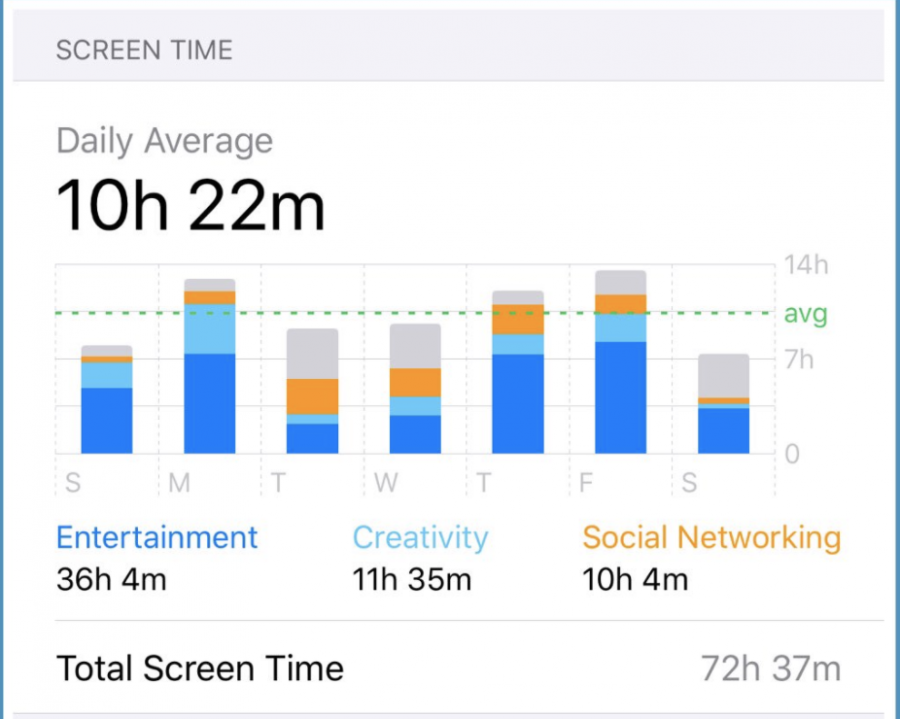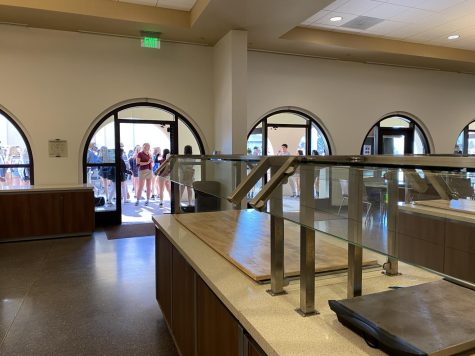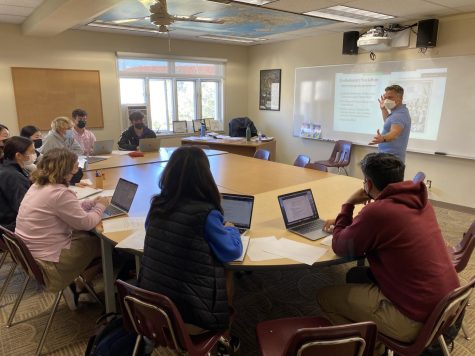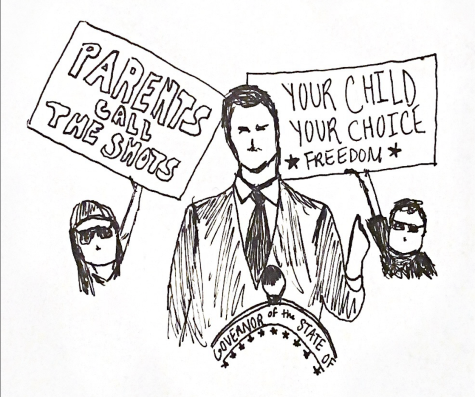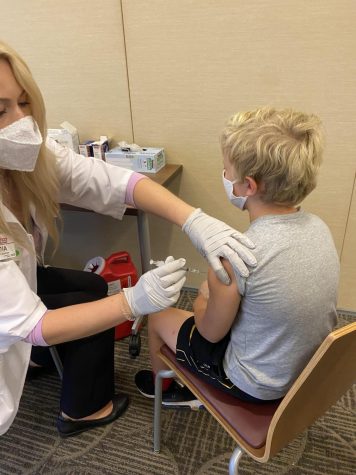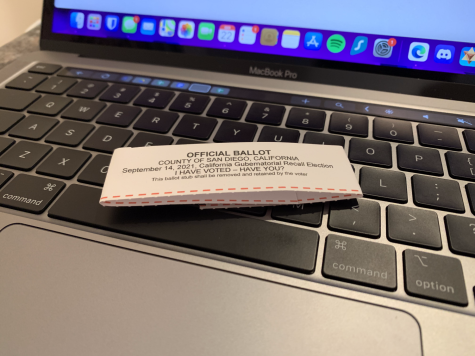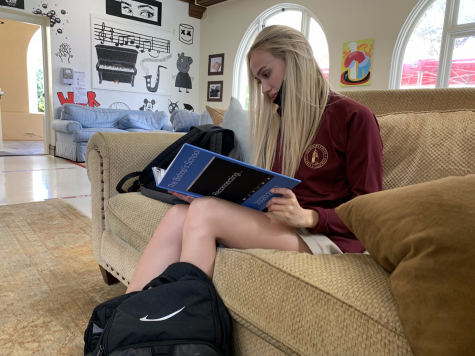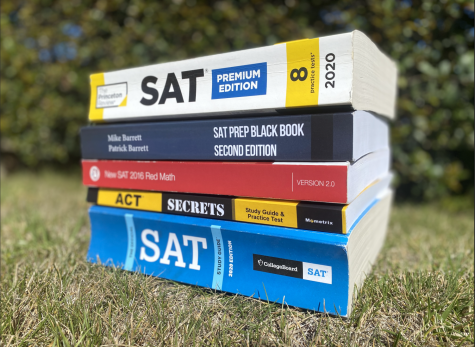On The Social Isolating Slump
How quarantining may damage teenage mental health
Courtesy of Kathryn Pryor on Twitter
Many people have reported increased screen time during quarantine, and sites such as Netflix, Instagram, Tiktok, and Youtube reported surges in activity.
Bleary eyes, pajama pants, and slouching in bed replaced physical attendance at school last spring. Students could roll out of bed two minutes before advisory, eat during class, and pretend to stare at the screen while scrolling through social media. Texting has taken the place of whispering. Instead of walking from one class to the next, they simply click a button. Isolation can have detrimental effects on teenagers.
The cancellation of any and all milestones and activities can induce depression and anxiety in teens as well, who generally tend to derive joy from working towards and achieving events. The cancellation of sports and arts has taken drive away from student-athletes and artists. Playoffs were cancelled, final performances. Many adolescents had to postpone or cancel birthday parties, including benchmarks like sweet sixteens, quincañeras, or becoming a legal adult at 18. The closing of the Department of Motor Vehicles (DMV) meant many teens were unable to get licenses or learners permits, leaving them to rely on their parents, which may increase their feelings of frustration or suffocation.
“Increased screen time usage…has been found to be linked with increases in depression, anxiety and perceived attention problems,” explained Jennifer Katzenstein, a psychologist at Hopkins All Children’s Hospital. Many teachers just continued their ordinary lectures in front of a screen, rather than giving students more interactive activities or giving them a chance to work on paper during class. “After a few hours on Zoom,” Mira Gowda (‘22) explained, “My eyes are sore and my head starts to hurt.”
Even before quarantine and COVID-19, adolescents had a problem with internet and social media addiction. One study showed that about 50% of students felt addicted to their phones. Without the opportunity to leave their houses, many have resorted to spending more time scrolling through TikTok, Instagram, or other social media sites. Facebook, Netflix, and YouTube all experienced significant surges in Internet traffic, corresponding with the arrival of COVID-19 and with the stay-at-home orders. In many ways, Internet entertainment can help to distract people from the news, or a break from work and life.
However, as COVID-19 cases spike and quarantine extends, the end of the situation becomes further and further away. According to a Pharmacy Times article, anxiety levels have spiked, not only because of loneliness and screen use, but also because people are “in a state of danger or threat,” causing “widespread despair and feelings of vulnerability.”
However, this extra time in quarantine has beneficial impacts as well. “At the beginning of quarantine it was a little tough because my days were so empty of activity and routine,” Mira noted, “But I think that a routine has really helped me feel less isolated.” Many teenagers have found increased time for self-care. Families may spend more time together, especially if all members work from home. In addition, there is an increased opportunity for people to develop healthier habits. YouTuber Chloe Ting’s workout programs have gained massive popularity during quarantine, creating an online exercise community, inspiring people to exercise daily, and live a healthier lifestyle. “Incorporating some workouts into my routine helps me feel more energetic,” explained Nadia Bitar (‘22) “and I always feel happier afterwards—it helps me forget about everything that’s going on.” While quarantine has had unfavorable aspects, teens have also used the time to their advantage.

Clare Malhotra was born in Boston, Massachusetts and moved to La Jolla at age nine. She is currently a senior, and this is her third year on The Tower....


